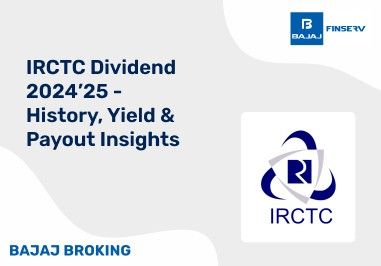BAJAJ BROKING
Tankup Engineers IPO is Open!
Open a Free Demat Account
Trade Now, Pay Later with up to 4x
Track Market Movers Instantly
What are Voting Shares?
There are many ways to categories and classify the shares that are available in the stock market, based on the privileges, rights and benefits that they offer. One way to classify the shares is on the basis of the voting rights that it grants to the investor. Voting shares provide voting rights to the shareholders and grant them a right to voice their opinion of matters of policy making within the company. These shares are different from non-voting shares which do not confer such a right to its holder.
Read on to know more about this, how they work, an example of such shares and their advantages and limitations.
Voting shares are a class of stocks that provide the right to vote to its holders. If you hold a voting share you can express your opinion on certain business matters and policies of the company.
Usually, in the case of most companies, every voting share gives the holder one vote. This effectively means that the more such shares you own, the more votes you get. You can then express your voting right at the shareholders’ meeting.
Equity shares are the most common example of voting shares. That said, not all equity shares offer voting rights. There is a subclass of equity shares known as Differential Voting Rights (DVR) shares that don’t come with the right to vote. Apart from equity shares, no other class of shares offer voting rights.
Also Read: What is a Share Class?
As you’ve already seen, holders of voting shares get to vote on certain key company business matters. However, the holders of such shares can exercise their vote only during general meetings, also known as shareholders’ meetings. Some key business matters that shareholders can vote on include the following.
- Appointment of directors and auditors
- Fixing remuneration for directors, auditors and other management executives
- Increase or change in the share capital structure of the company
- Share buybacks
- Mergers and acquisitions
The holders of voting shares are not required to exercise their vote. However, they cannot transfer the right to another shareholder or an individual. Refraining from exercising their right to vote will not alter the ownership or value of the shares held in any way.
Also Read: Authorized Share Capital: Definition, and Types
Voting shares are a crucial component of a company’s share capital structure. They represent ownership and provide the holders with certain privileges and rights. Here are some reasons why these shares are considered to be very important for the seamless functioning of a company.
- This enable its holders to participate in the decision-making process, enabling them to ensure that the company is managed in a way that’s in line with their interests.
- Provide shareholders with the power to hold a company accountable for their actions.
- Provide minority shareholders with the power to protect their interests from being overshadowed by much larger shareholders.
- Allow the holders to propose resolutions and suggest changes for the ultimate benefit of the company
Also Read: What is a Share Certificate?
Let’s say a company ABC Limited issues 10,000 equity shares with voting rights and 20,000 preference shares. You, a shareholder in the company, hold 1,000 equity shares and 2,000 preference shares of the company.
The company calls for an Annual General Meeting (AGM) where it proposes certain resolutions to be passed. This includes the appointment of a director and the decision to increase the total authorised share capital of the company.
Since you hold around 1,000 equity shares, going by the one-share-one-vote policy, you get 1,000 votes, which you can exercise during the AGM. Meanwhile, the 2,000 preference shares you hold don’t give you the right to vote on any resolutions in the AGM.
Now, the proposed resolutions will be passed if a majority of the shareholders (51% or more) give their consent through voting. If not, the proposed resolutions will be rejected.
Advantages
Voting shares provide its holders multiple benefits. Here is what these shares have to offer to you:
- These shares make you eligible for dividends in the form of bonus shares or cash payments.
- These shares allow you to participate in the decision-making process of the company.
Limitations
As with the other classes of shares a company issues, voting shares also have certain limitations or disadvantages. Here’s a quick overview of some of them.
- Dividends are not guaranteed to the holders of voting shares.
- Holders of such shares are the last to be compensated in the event of company liquidation.
- Companies generally issue very limited voting shares to prevent dilution of ownership.
Also Read: How to Buy and Sell Shares of Unlisted Companies
Conclusion
Voting shares are stocks that will grant you the right to vote in matters of company’s policies. If you own voting shares in a company, it is a good idea to exercise your right to vote in the company’s annual general meetings (AGM), so you can play a part in how the company you’ve invested in functions. Nowadays, many companies even conduct virtual AGMs, so shareholders with voting rights can cast their votes online.
Meanwhile, if you are yet to implement a buy-and-hold strategy and are interested in buying voting shares in some companies for the long term, you need a demat account to hold the shares electronically. Open your demat account with Bajaj Broking today, so you can implement your strategy right away.
Share this article:
Read More Blogs
Disclaimer :
The information on this website is provided on "AS IS" basis. Bajaj Broking (BFSL) does not warrant the accuracy of the information given herein, either expressly or impliedly, for any particular purpose and expressly disclaims any warranties of merchantability or suitability for any particular purpose. While BFSL strives to ensure accuracy, it does not guarantee the completeness, reliability, or timeliness of the information. Users are advised to independently verify details and stay updated with any changes.
The information provided on this website is for general informational purposes only and is subject to change without prior notice. BFSL shall not be responsible for any consequences arising from reliance on the information provided herein and shall not be held responsible for all or any actions that may subsequently result in any loss, damage and or liability. Interest rates, fees, and charges etc., are revised from time to time, for the latest details please refer to our Pricing page.
Neither the information, nor any opinion contained in this website constitutes a solicitation or offer by BFSL or its affiliates to buy or sell any securities, futures, options or other financial instruments or provide any investment advice or service.
BFSL is acting as distributor for non-broking products/ services such as IPO, Mutual Fund, Insurance, PMS, and NPS. These are not Exchange Traded Products. For more details on risk factors, terms and conditions please read the sales brochure carefully before investing.
Investments in the securities market are subject to market risk, read all related documents carefully before investing. This content is for educational purposes only. Securities quoted are exemplary and not recommendatory.
For more disclaimer, check here : https://www.bajajbroking.in/disclaimer
Our Secure Trading Platforms
Level up your stock market experience: Download the Bajaj Broking App for effortless investing and trading













